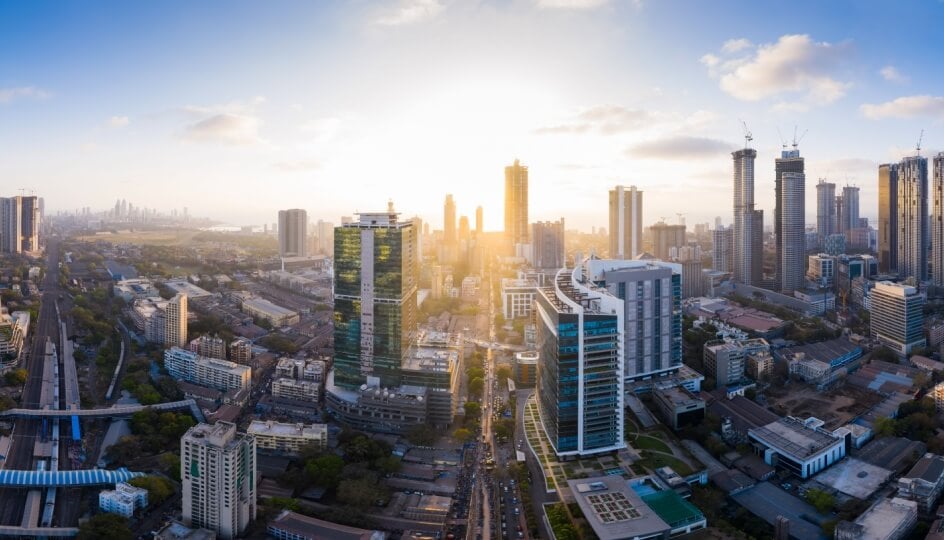10th GBCI report: rankings revealed – Netherlands and UK among 10 easiest countries to invest in. The US loses position in top 10. France overtakes Brazil as the most complex jurisdiction for doing business

TMF Group, a leading provider of compliance and administrative services, has today launched the 10th edition of the Global Business Complexity Index (GBCI).
The comprehensive report analyses 78 jurisdictions which account for 92% of the world’s total GDP and 95% of net global FDI flows. It compares 292 annually tracked indicators, offering data on key aspects of doing business, including incorporation timelines, payroll and benefits, rules, regulations, tax rates, and other compliance factors.
The study reveals some important news: the US has fallen out of the bottom ten (the easiest places to do business) after many years of featuring in that prestigious list. Meanwhile, Denmark, the UK and Hong Kong keep their places in the ten least complex jurisdictions.
The list of the ten most business-friendly jurisdictions has some new entries, such as Malta (69th position vs 67th place in 2022) and the Netherlands (75th position vs 56th place in 2022). The Cayman Islands (78th) retains its place as the easiest jurisdiction to do business.
The UK Has moved down the ranking this year, cementing its position in the ten least complex places to do business. In the wake of Brexit, there is a stable environment and favourable industry support from advisors and industry groups, making the jurisdiction an attractive place to do business. There are still regulations that the UK needs to finalise in the post-Brexit world, one of which relates to VAT.
Despite the simplicity, the UK’s stringent Know Your Client checks add to the length of time it takes to open a bank account when setting up a business. The jurisdiction also introduced a new register for overseas entities which was established at the start of 2023, meaning anyone who owns real estate in the UK from an overseas territory could face high penalties for non-compliance. The war in Ukraine has been the catalyst of these changes as the UK tax authority has placed sanctions on Russian businesses and investors.
The UK experienced great political turmoil in 2022, impacting the economy alongside a high inflation rate. However, the political environment has settled somewhat and over the next 12 months the UK is expected to remain a simple place to do business. The authorities here are consistent at implementing new funds and capital markets regulations and are also keeping in line with ESG recommendations. This makes it attractive to foreign investors.
The United States has slipped out of the ten least complex but it still one of the simplest jurisdictions. A key driver of that is that the government actively looks to make it business friendly: in recent years corporate tax rates were reduced in an effort to increase investment. Thanks to its skilled workforce and clear global reach, the US will remain one of the most attractive jurisdictions for foreign businesses.
Despite the business-friendly environment, some challenges are on the horizon. For instance, the Corporate Transparency Act (CTA) will be introduced from 2024 for new entities, and 2025 for established organisations. The CTA mandates more detailed disclosures to drive transparency and reduce issues with corruption and money laundering. This may create some additional complexity for businesses entering the US in the short term. However, it should remain a stable jurisdiction that attracts FDI over the coming years.
As far as the most complex jurisdictions, 2023’s rankings are topped by France, replacing Brazil which was considered the least business friendly jurisdiction in both 2021 and 2022. Mexico, Colombia, Bolivia, Turkey and Italy are still in the top 10 most complex countries and are joined by Argentina.
France takes the top spot in this year’s GBCI, following two years in second position. Factors making it the most complex place to do business include the focus on maintaining traditional ways of working, such as the use of the French language, and the continuation of historically stringent employee protection laws.
At the same time, France tends to be an early adopter of international legislation, partly because of its role at the forefront of the EU. Complexity can increase as a result of the country implementing changes quickly, but in the long term it becomes more simplified and stable, with investors knowing where they stand compared to jurisdictions that may be slower at implementing global standards.
World trade is in recovery from the difficult years of the Covid-19 pandemic. Challenges of course remain including the ongoing war in Ukraine, associated sanctions and geopolitical tensions. Rising interest rates have also been the trigger for stresses in the financial markets that have so far been contained by prompt intervention by relevant authorities. Against that backdrop, we want to do all we can to simplify the path to investing and operating around the world. Trade and investment stimulate economic growth. Complex places to do business are often among the most attractive, whether that involves gaining access to resources, workers or consumers.
The report also identifies key themes shaping the global business landscape and regulatory environment:
Geopolitical and economic turbulence
The study reveals that since 2020, confidence in the economic stability of jurisdictions over the next five years has been waning. Confidence in political, geopolitical and social stability has, however, remained mostly stable. This is surprising given recent global events, such as the Covid-19 pandemic, war in Ukraine and unprecedented rates of inflation around the world.
Since the start of the war in Ukraine, jurisdictions have observed disrupted supply chains and increased energy prices, as well as barriers to international trade. This makes doing business more challenging, particularly across borders. Many jurisdictions that were reliant on Russia and Ukraine for exports like grain and oil are severely impacted, which increased inflation, demonstrating that the impacts of the war are global, not limited to Europe.
Despite political, geopolitical and social expectations remaining stable, there is a sense that businesses may be less open to global expansion than in previous years. In 2020, 74% of those jurisdictions reported that businesses would find it more appealing to operate there over the next five years. This has dropped to 65% in 2023, suggesting that optimism has faded somewhat, and organisations may be taking a more cautious approach over the coming years.
Another worrying indicator is rising inflation, which causes significant issues such as huge price increases on essentials like food, fuel and utilities. As a consequence, employees are seeking more financial support from their employers to make ends meet. This has led to widespread salary demand increases, and workers seeking better opportunities elsewhere. 60% of jurisdictions report that inflation has increased employee attrition. This is often combined with skills shortages to create recruitment and retention challenges for businesses. The ‘great resignation’ is putting pressure on organisations to remain agile and competitive. This is particularly the case in EMEA where almost all (98%) of jurisdictions surveyed are noting this trend.
Global compliance challenges
Compliance requirements, such as reporting on ultimate beneficial owners (UBO) and persons of significant control (PSC), have been a core part of conformity processes in locations around the world in recent years. Regulations such as know your customer (KYC) and anti-money laundering (AML) have been adopted by at least some industries across all jurisdictions.
As a result of geopolitical tensions, jurisdictions are observing a tightening of global compliance regulations such as KYC and UBO reporting. 43% expect further regulatory compliance reporting for businesses within the next year. This will mean that businesses not only have to navigate greater reporting demands, but also may be expected to do so in a more rapid manner than previously.
Due to this pressure and increased complexity, almost half (48%) of jurisdictions report that at least some companies will rethink their expansion goals. This demonstrates the true impact that global compliance legislation and reporting can have, limiting the attractiveness of a jurisdiction and encouraging businesses to look elsewhere.
However, while global compliance incentives can increase complexity, they can also drive the attractiveness of jurisdictions, particularly for private wealth and family office (PWFO) clients who seek safety and security. For instance, in Singapore, a strong and stable regulatory framework and political stability are the key factors that attract foreign investments. Singapore also offers attractive tax incentive schemes that appeal to high-net-worth individuals.
Environmental, social and governance (ESG) considerations
ESG criteria are increasingly prominent, with companies now required to abide by at least one requirement in the majority of jurisdictions, with diversity to the fore. Half of jurisdictions (51%) require companies to abide by laws relating to diversity of the workforce, with over one quarter (27%) requiring companies to report on it.
Almost half (49%) of jurisdictions require all companies to submit reports on employee demographics to government authorities, which has continued to grow year on year (28% in 2020, 41% in 2021, 47% in 2022). In South America, 80% of jurisdictions require all companies to report on employee demographics, followed by 64% of jurisdictions in APAC.
With reporting requirements for ESG likely to increase, and not just for public and listed companies, there be pressure to navigate the new and upcoming legislation. There is an administration and resourcing cost implication which is affecting large and listed companies in multiple locations (cited, for example, by our experts in South Africa).
As the importance of ESG continues to grow, companies will have to navigate new requirements beyond simple box-ticking exercises and commit to reporting on their ESG indicators. However, given that ESG requirements are in their infancy in many jurisdictions, the impacts and future of ESG reporting remains unclear.
Top and bottom ten (1= most complex, 78= least complex)
| Ten most complex | Ten least complex |
| 1. France | 69. Malta |
| 2. Greece | 70. Jersey |
| 3. Brazil | 71. New Zealand |
| 4. Mexico | 72. United Kingdom |
| 5. Colombia | 73. British Virgin Islands |
| 6. Turkey | 74. Hong Kong |
| 7. Peru | 75. The Netherlands |
| 8. Italy | 76. Curaçao |
| 9. Bolivia | 77. Denmark |
| 10. Argentina | 78. Cayman Islands |
Media Contacts
TMF Group:
Giampaolo Arghittu, Senior Global External Communications Manager,
giampaolo.arghittu@tmf-group.com
T: +39 334 947 95 84



